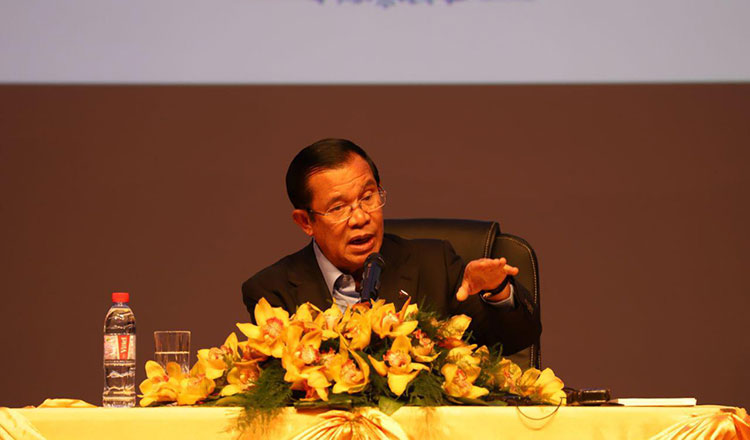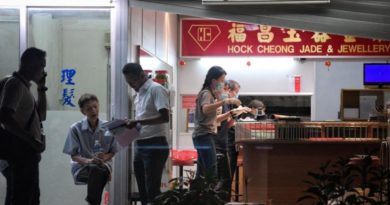ASEANews Headlines: Everything-but-arms (EBA) withdrawal will not impact Cambodia: Prime Minister Hun Sen
.
.
Prime Minister Hun Sen has said that the withdrawal of the Everything-but-arms treaty by the European Union will not affect Cambodia as it would have eventually disappeared regardless of the EU’s current review.
Speaking to about 1,000 Cambodian people living in Europe where he attended the Asia-EU summit in Brussels on Saturday, Mr Hun Sen said Cambodia would eventually lose access to the EBA as the country’s economy keeps growing.
.
– SPACE RESERVE FOR YOUR ADVERTISEMENT –
.
“Now I talk from Brussels where the EBA is located. The point that I would like to tell all compatriots: Have you lost jobs or income yet? Nothing has been lost but they issue this review as a psychological war attack,” Mr Hun Sen said.
Mr Hun Sen’s reaction came after EU Trade Commissioner Cecilia Malmstrom informed Cambodia in an October 5 statement that the EU has begun the process of withdrawing its EBA status, which could take up to six months and is being done due to perceived democratic and human rights setbacks in the Kingdom.
“We must ask questions like why Vietnam does not receive EBA access, and neither does Indonesia nor Thailand, and that is because they have economic growth,” he said. “So, Cambodia will sooner or later lose it as well. Once the time comes, it will be gone because our economy is growing. For loans, they will not lend us with low interest rates any more. It will be loans with commercial interest rates.”
“But I talked with Japan, South Korea, China and the Asian Development Bank as our economy is growing, asking please let me take loans with concessional interest rates,” Mr Hun Sen added.
Mr Hun Sen said that during bilateral discussions with Japanese Prime Minister Shinzo Abe this month, he requested that Mr Abe issue loans to Cambodia with a 0.01 percent concessional interest rate.

.
“If we lose the EBA, a market still exists,” he said, noting that Cambodia lost tax preferences for exports to the United States in 2004.
“We used to export to the United States without paying tax but they gave us a certain time period and it was terminated in 2004. We now pay tax for export to the United States,” he said.
“When companies export to the United States now, they still get revenue,” he noted. “Market remains market. It is the same but income will be less than before because they require us to pay tax. For this issue, we will meet but now we have no problems.”
The EU is Cambodia’s main export destination, accounting for 40 percent of all Cambodian exports. These exports have risen sharply in recent years, increasing by 227 percent between 2011 and 2016, and reaching €5 billion in value last year alone.
The garment sector exported 46 percent of textile to Europe followed by the United States (24 percent), Japan (16 percent) and Canada (9 percent). The EBA removal would incur a cost of $676 million in taxes based on last year’s export revenue.
The EBA has contributed to significant job creation and growth in the textile sector, which accounts for 75 percent of Cambodia’s exports to the EU, with employment of about 700,000 workers.
Ath Thorn, president of Cambodian Labour Confederation, expressed concern over the withdrawal of the EBA.
“I think if the EU withdraws the EBA, big companies still export with paying tax, but it will affect small companies. When companies stop operating, there will no jobs and income for the people,” Mr Thorn said.
Kaing Monika, GMAC’s deputy secretary general, could not be reached for comment.
Khuon Narim / Khmer Times

All photographs, news, editorials, opinions, information, data, others have been taken from the Internet..aseanews.net | [email protected] / For comments, Email to : Aseanews.net













